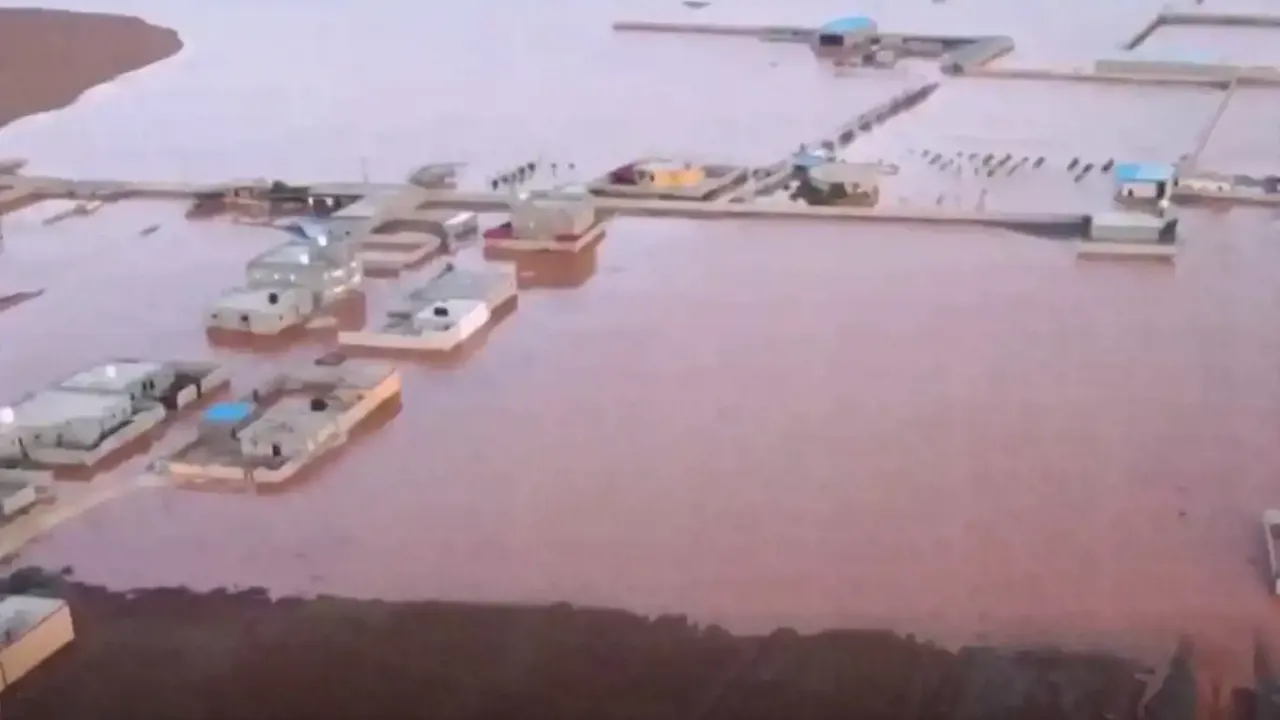Local sources have also revealed that an additional 10,100 individuals are reported missing in the Mediterranean city. Initial health authority reports had estimated the death toll in Derna at 5,500. Tragically, the storm claimed the lives of approximately 170 more people in other parts of the country.
The devastating flooding in Derna, which occurred on Sunday night, swept away entire families and exposed significant vulnerabilities in this oil-rich nation, which has been entangled in conflict since the 2011 uprising that ousted longtime dictator Moammar Gadhafi.
The torrential rains responsible for the floods were brought by Mediterranean storm Daniel, which struck Libya on September 10, 2023. Derna, located in the eastern part of the country, experienced the heaviest rainfall, leading to the collapse of two dams and the subsequent inundation of the city by waves exceeding 20 feet in height. The destruction also extended to other areas in eastern Libya, including the towns of Bayda and Marj.
The death toll continues to be updated, but current estimates suggest that at least 11,300 people have lost their lives, and an alarming 10,100 remain missing.
One of the most tragic aspects of this disaster is that many of these deaths could potentially have been prevented if adequate warning systems were in place. The United Nations' weather and climate agency disclosed that it had issued warnings a full 72 hours before the dam breaches occurred, including communication with Libyan authorities and public statements. Regrettably, these warnings were not heeded, and timely evacuations were not carried out.
The floods have inflicted widespread devastation on Derna, causing extensive damage to homes, businesses, and critical infrastructure. The city is still grappling with the aftermath of this catastrophe, and the full extent of the damage is yet to be determined.
In response to the crisis, the Libyan government has declared a state of emergency in the affected regions and is actively working to provide relief and support to survivors. International organizations, including the United Nations, have also mobilized resources and assistance.
This tragic event serves as a stark reminder of the vulnerability of many nations to the impacts of climate change. Libya, a predominantly desert country, has experienced a notable increase in rainfall in recent years. Experts attribute this shift to climate change, which is causing the Earth's atmosphere to warm, leading to increased evaporation and precipitation.
While the floods in Libya represent a heartbreaking tragedy, they also underscore the urgent need for global action to address climate change and reduce the risk of future disasters. (ILKHA)









